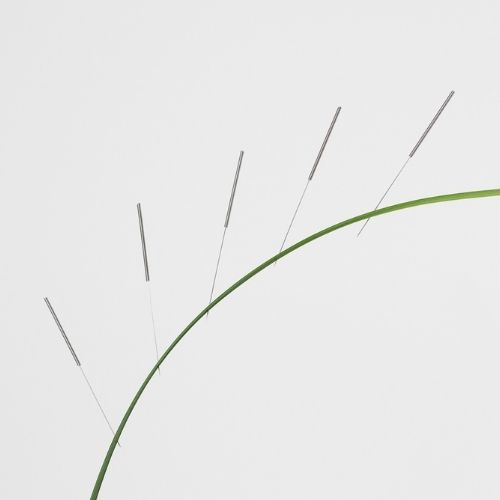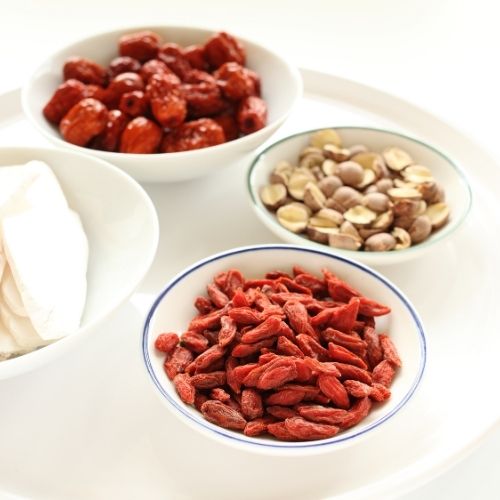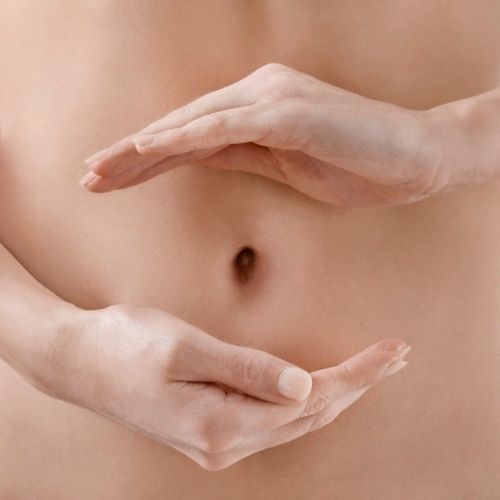One of the fields that we have become passionate about in our clinic is postpartum care. As we help women trying to conceive and then see them throughout their pregnancy to help nourish them, we did not focus as much on postpartum care since we thought many women have little ones at home and making it in for treatment becomes harder. Our patient base told us otherwise. The need for help with physical and emotional support became ever apparent to us. In fact, what we started to realize was the inadequate level of care women get in the United States after they give birth. A big focus of our attention was not just pre-natal care, it became “how can we best support our patients postpartum”.
In Chinese culture, the immediate postpartum period is viewed as another trimester, some may say the 4th trimester. In fact, there is a focus on postpartum care to the mother. It is said ” in order to nourish the child, nourish the mother”. Diet as well as herbal medicine play big roles in postpartum care.
Diet and nutrition:
One of the most important factors in replenishing a women, who has just given birth, and now is feeding another human and often times getting up in the middle of the night is simply nutrition. We recommend warm foods to help nourish the body and aid the digestion system into breaking down foods and extracting nutrients easier.
One of my favorite recipes to recommend for patients when they really need to start consuming very simply but nourishing foods is to make a congee or a rice porridge. In all honesty, I recommend congees to many of my patients, not just those who are pregnant or postpartum. It is very easy, though can be a time commitment, so when making it plan to make enough for a week. Traditionally, this dish is served to assist in the recovery from an illness, because it is very gentle on the stomach, helps to promote ease of digestion, and is extremely nourishing. However the beauty of a congee is that it’s variable depending on what you add to it. The most basic recipe is as follows:
On the stovetop, combine 1 and a half cups of rice to 6 – 8 cups of water or a broth of your choosing. Chicken broth and vegetable broth are both great nutrient dense alternatives to water, though water can be great. You want to cook the rice until the grains get very soft, the more water that is added the more soup-like the consistency will be. If you are unsure of what consistency you prefer, try adding less water and then adding more as needed. You can add a couple of pieces of raw ginger into the mix to cook as well. And for those of you with a pressure cooker, this recipe can be followed with the same instructions, though you would not add more water/broth to it.
When the dish is fully cooked you can add some seasonings to your preference, traditionally the rice can be cooked in with some various Chinese herbs and spices which can be gladly prescribed to you. Though some seasonings you may have on hand can include Tamari, sesame seeds (black sesame is great for nourishing blood), sesame oil, and sautéed veggies.
Herbal medicine:
Herbal medicine comes in many shapes and sizes! When a patient receives herbal medicine as part of a treatment plan, these herbs are specifically chosen to be a part of a formula to treat a specific pattern. Often, those who have just had a baby need some assistance to supplement their body. According to Chinese philosophy, after birth many new moms need to replenish their supplies of qi and blood. After all, mom’s recovery is extremely important for the healthy development of a newborn. The actions of the formulas prescribed during this time are typically chosen in order to warm the body, and help boost qi and blood.
However, herbal medicine reaches far beyond the confines of an herbal dispensary and can be found at the shelves of your local grocery store! Hippocrates (classically) states ‘let thy food be thy medicine,” meaning that food is healing in and of itself. Working with the natures of classic foods and spices is considered an auxiliary form of herbal medicine. I like to recommend to my patients that they can incorporate warming spices and teas into their diet as needed. Some warming herbs can include things like ginger, cardamom, cinnamon, clove.
Rehabilitation and exercise:
Before delving into this section, I feel it’s necessary to add a brief addendum on postpartum body image. There is so much pressure on a woman to regain her pre-baby body. We’re constantly bombarded with advertisements, social media, celebrities, people without any healthcare knowledge giving us ideas about what is right and wrong for our bodies. Having an expectation that 6 weeks after having a baby you’ll ‘have your body back’ is setting yourself up for frustration and negative self-talk. Your body is your body no matter what shape, size or form it is. Remembering that your body was able to grow, carry and feed a tiny human is nothing short of a miracle. While there is absolutely no harm in wanting to be healthy and fit and return to a more normal routine; setting up expectations of your body to be anything other than how it is in the present moment is not in your best interest.
With that being said, postpartum recovery does essentially include some form of physical rehabilitation and exercise. This is not done to make up for the weight gain that is common to experience during pregnancy, but to ensure that your body recovers from the marathon that it just endured. If you think about it, a woman’s body needs to adjust to the pressures of growing a child, and overnight the body needs to readjust to not growing a child. During pregnancy the core destabilizes, the pelvis tilts and various muscles become lengthened and become inhibited. This is all a normal by-product of pregnancy, though following delivery it can be extremely useful to restore proper biomechanics in order to prevent injury or pain as time moves on.
Since this medicine is extremely integrative, it’s important to include the community of resources that can be of benefit during this time. Specialized chiropractors and physical therapists offer a wealth of information to support new mothers in their journey towards physical health. And of course, acupuncture can provide relief to so many new mothers who have to learn to re-adjust after their body shifts so dramatically.
It’s important that individuals know that there are resources to support them while they go through postpartum recovery, and that they don’t have to do it alone. I have immense gratitude that I practice a medicine that is so diverse and able to assist those going through this process.













